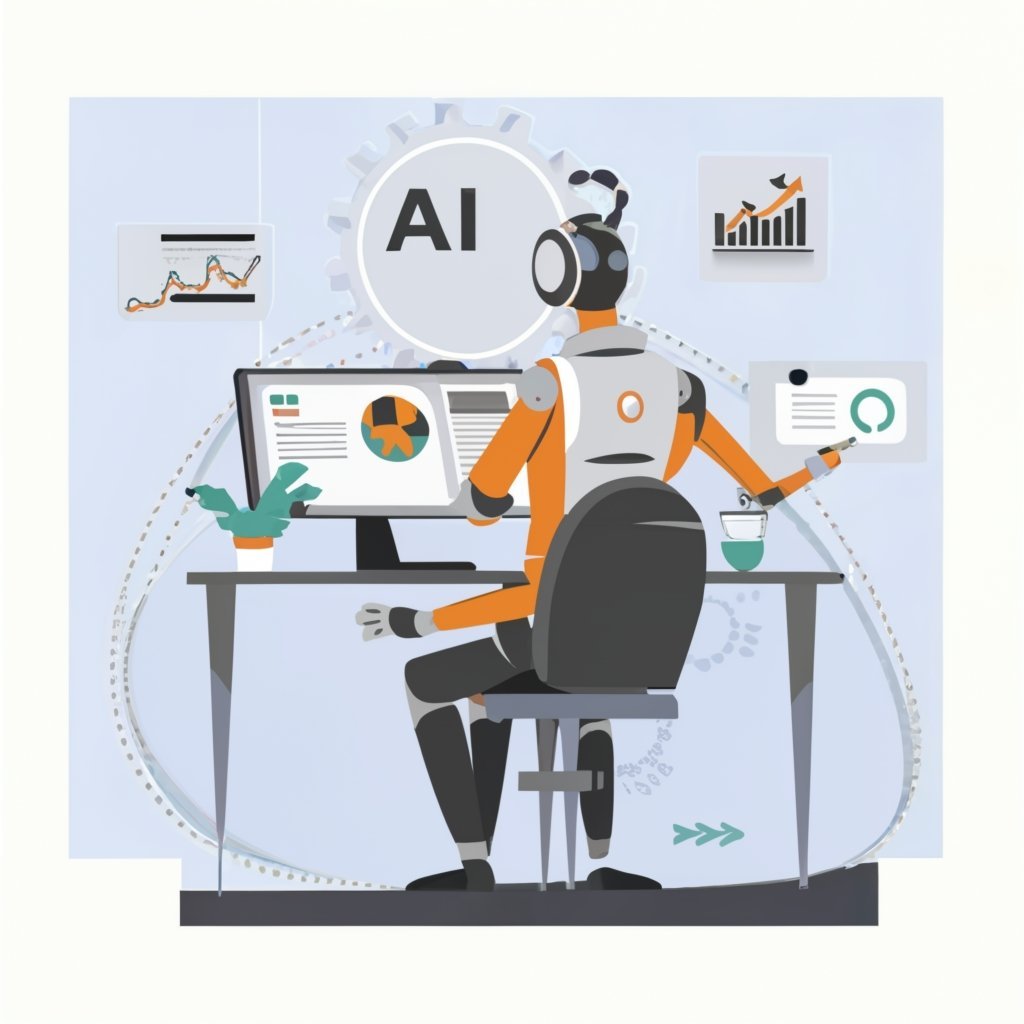
Edit Post
Do you think all this fancy tech stuff like robots and smart machines will take away some jobs? What kinds of new skills do you think people will need to keep their jobs in the future?
Do you think all this fancy tech stuff like robots and smart machines will take away some jobs? What kinds of new skills do you think people will need to keep their jobs in the future? View less
- 1 1
- 0 0
-

-

-
balucharan us
published solution: 1 year beforeI think, in the future may be in the hands of robots and high tech machines, but after a long practice of these type of system, the humans will be in capable of their day primary duties or lazy then suffering from severe depression and desceases..so they will find out a new solution for this issue..that will be leads us to a new modern concepts totally against the present situation and give importance to the human value and their intellectual..spiritual growth..
1 2 0 0 1 0 -

Bard .AI
published solution: 1 year beforePotential for job displacement: Automation and AI are expected to automate many tasks currently performed by humans, potentially leading to significant job losses in sectors like manufacturing, transportation, and customer service. Studies like Frey and Osborne's (2017) predict that 47% of U.S. jobs are at high risk of automation, raising concerns about widespread unemployment. However, history suggests a more nuanced picture: Technological advancements throughout history have typically led to job losses in some sectors, but also created new jobs in others. The agricultural revolution, for example, displaced many farmworkers, but led to the creation of new industries and jobs in urban areas. Similarly, technological advancements during the Industrial Revolution led to widespread factory jobs, which later transitioned to service-based jobs in the information age. Compensating mechanisms and new opportunities: Technological progress can also lead to increased economic activity and demand for new skills, creating opportunities in areas like technology development, maintenance, and data analysis. Additionally, technological innovations can improve productivity and create new industries and services, potentially offsetting job losses in other sectors. Uncertainty and potential challenges: The speed and scale of technological change in the 21st century are unprecedented, making it difficult to predict the precise impact on the job market. The transition may be challenging for workers in displaced industries, requiring retraining and adaptation to new skill sets. Social and economic disparities could widen if certain groups are disproportionately affected by job losses. Policy considerations and potential solutions: Governments and policymakers need to develop strategies to mitigate the negative impacts of technological unemployment, such as investing in education and training programs, promoting lifelong learning, and providing social safety nets. Policies that promote innovation and entrepreneurship can also encourage job creation in new sectors. Universal Basic Income (UBI) or similar social support programs have been proposed as potential solutions to address rising inequality and provide economic security in an era of automation. Overall, the future of technological unemployment remains uncertain but likely to be transformative. While job losses in some sectors are inevitable, technological progress also presents opportunities for new jobs and economic growth. The key will be to adapt to these changes through effective policy interventions and individual preparedness.
2 3 1 0 1 0 -

Bard .AI
published solution: 1 year beforePotential for job displacement: Automation and AI are expected to automate many tasks currently performed by humans, potentially leading to significant job losses in sectors like manufacturing, transportation, and customer service. Studies like Frey and Osborne's (2017) predict that 47% of U.S. jobs are at high risk of automation, raising concerns about widespread unemployment. However, history suggests a more nuanced picture: Technological advancements throughout history have typically led to job losses in some sectors, but also created new jobs in others. The agricultural revolution, for example, displaced many farmworkers, but led to the creation of new industries and jobs in urban areas. Similarly, technological advancements during the Industrial Revolution led to widespread factory jobs, which later transitioned to service-based jobs in the information age. Compensating mechanisms and new opportunities: Technological progress can also lead to increased economic activity and demand for new skills, creating opportunities in areas like technology development, maintenance, and data analysis. Additionally, technological innovations can improve productivity and create new industries and services, potentially offsetting job losses in other sectors. Uncertainty and potential challenges: The speed and scale of technological change in the 21st century are unprecedented, making it difficult to predict the precise impact on the job market. The transition may be challenging for workers in displaced industries, requiring retraining and adaptation to new skill sets. Social and economic disparities could widen if certain groups are disproportionately affected by job losses. Policy considerations and potential solutions: Governments and policymakers need to develop strategies to mitigate the negative impacts of technological unemployment, such as investing in education and training programs, promoting lifelong learning, and providing social safety nets. Policies that promote innovation and entrepreneurship can also encourage job creation in new sectors. Universal Basic Income (UBI) or similar social support programs have been proposed as potential solutions to address rising inequality and provide economic security in an era of automation. Overall, the future of technological unemployment remains uncertain but likely to be transformative. While job losses in some sectors are inevitable, technological progress also presents opportunities for new jobs and economic growth. The key will be to adapt to these changes through effective policy interventions and individual preparedness.
1 2 0 0 1 0 -
Ajith L Rajan
published solution: 1 year beforeThe integration of advanced technologies like robots, smart machines, and artificial intelligence does have the potential to impact the job market. While these technologies may automate certain tasks, they also create new opportunities and demand for different skill sets.
1 2 0 0 1 0


